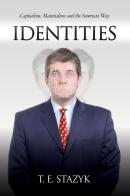Things People Don’t Say Anymore
I’ve been reading an old(er) novel lately and although the plot and ideas are timeless, some of the phraseology is a bit out of date. I know that millennials, et. al. don’t read many novels and I started thinking that aside from the lack of pictures, maybe one of the things putting them off is outdated terms and phrases.
So I’ve put together a little glossary to help! Here are some of the obscure phrases I’ve encountered.
Put paid to—This means to complete or finish something once and for all. The term comes from the old days when business was transacted with paper invoices. Once the invoice was paid, it would be stamped “Paid in Full” to indicate that the debt was discharged. So putting paid refers to stamping “Paid” on an invoice and finalizing the transaction. A modern use of the term might be, “The persistence of Kanye West as a cultural icon has put paid to the notion that civilization is advancing.”
Quitting—Nope this doesn’t mean leaving your job. In the old days it meant leaving the room. As in, “when I heard my girlfriend’s parents pulling into the drive, I quit her bedroom.” You might add “posthaste” to that.
Footfalls—These days it’s a marketing term for foot traffic in stores, as in, “we’ve got to increase the footfall or we’ll go out of business.” But in old books it means the sound of footsteps. So when quitting your girlfriend’s bedchamber, you will probably want to make sure your footfalls are silent.
Confutation—I like this one because it sounds like “confused,” and the less well informed (i.e., people who don’t read this blog) may think that’s what it means. But they would be wrong! Confute means to deliver an overwhelming (irrefutable) argument. For example, you definitely want a really good confutation if you are going to ask your boss for a raise.
Hitherto—Up until now or before this. I’d expected my new iPhone to have more hitherto unknown features.
Gainsay—To deny or contradict. As in “I tried to gainsay her confutation to no avail.”
Lest—Another tricky one. A lot of people think it means ‘unless,’ but the real meaning is to prevent something (usually bad) from happening. As in, “Don’t juggle chainsaws lest you lose a limb.”
Afford—Another sneaky word that has a different usage today. Now it means to be able to pay for something, as in “I wish I could afford an iPhone 14.” But it also means to provide. As in, I hope my helmet will afford protection if I go over the handlebars.
Malice aforethought—This is an old legal term that has been replaced by “premeditated,” and “intent. It basically means you did something to hurt someone and you wanted to do it before you did it so it wasn’t an accident. When I threw my sister’s doll down the stairs and claimed it was an accident, my grandmother said, “I saw you. You did it with malice aforethought!”
Alas the day—If you manage to find this in a dictionary, it will say “archaic,” which means really old. Like Shakespeare old—in fact he used it a lot. Sometimes it appears as alackaday. I can’t find a clear cut explanation of where it comes from but it’s basically an old fashioned way of saying, “Oh shit.” So you might say, “Alas the day, I lost my phone.”
Yclept—It’s pronounced i-klept and it means by the name of. So you might say, “the guy yclept Joe.”
Anent—If you are OK with using yclept, you’ll love anent. It means “about,” and in the old days people used it all the time in formal correspondence. So instead of saying, “get back to me,” they’d say “kindly revert anent the above.” Try it in a text message sometime!
Hope this helps you enhance your communications. The next time you are talking to your colleague yclept Joe anent his attempt to gainsay your confutation that there was no malice aforethought before he quits the conversation with echoing footfalls you might say “alas the day, I only wanted to afford you some hitherto unknown facts lest you put paid to your career.”


Very entertaining information about archaic and little-used terms!